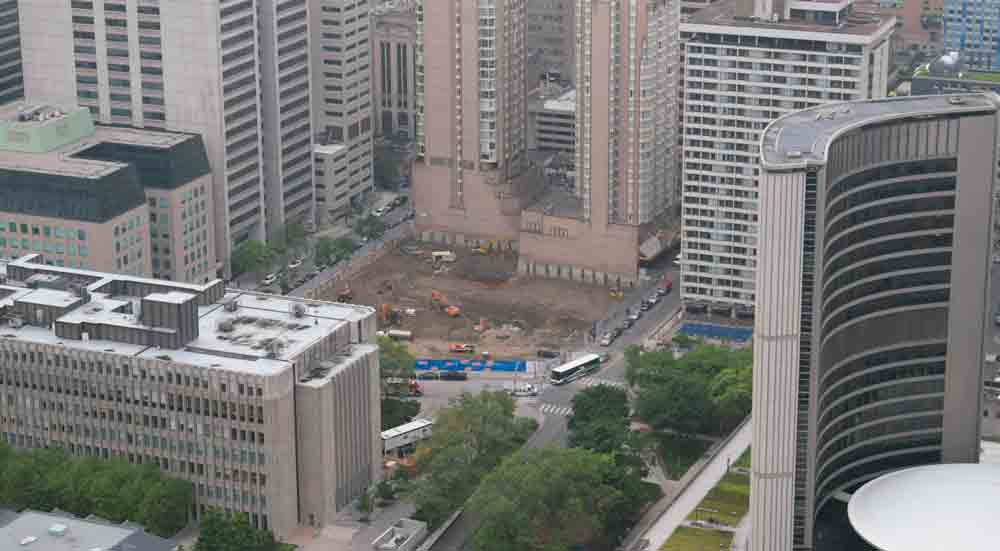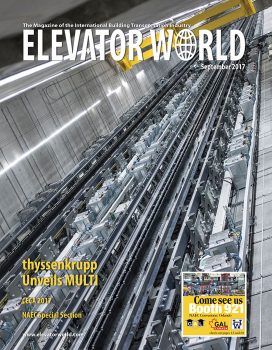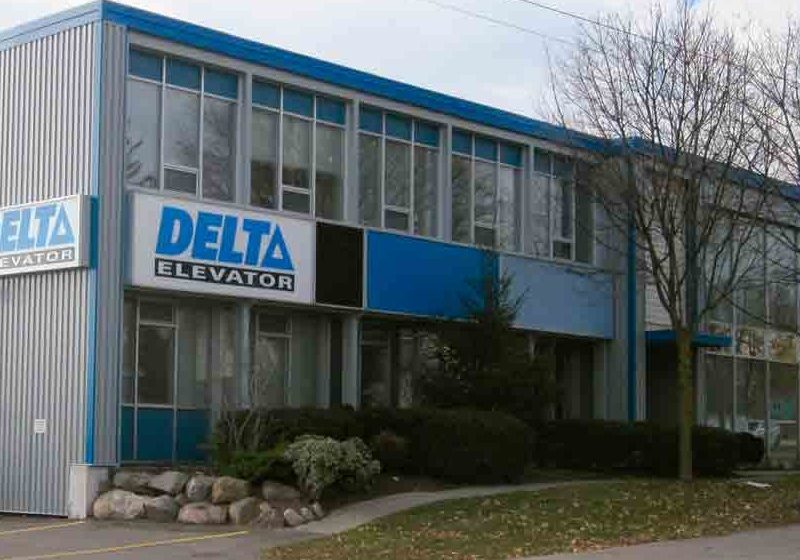By the Field, for the Field
Sep 1, 2017

Fast-growing AVT Beckett continues making its name in Canada as it looks to expand to the U.S.
At a height of 246 m and a diameter of 21 m, the thyssenkrupp test tower in Rottweil, Germany, dominates the countryside. The company has invested more than EUR40 million (US$46.5 million) in the tower, and now has an advanced and ultramodern test center for new elevator concepts and technologies in one of Germany’s oldest cities.
The test tower has all that is needed for the development and testing of sophisticated elevator systems. It has 12 shafts in total, nine of which can be used as test shafts where engineers can conduct real-life runs with a top speed of 18 mps. In addition, there are test units for the TWIN elevator system and three test shafts reserved for the MULTI. Some shafts rise up to 200 m in height, nearly reaching the tower’s very top. However, others are much shorter and end at around 120 m. The space above these shorter shafts is used as an energy storage system where the thermal energy that results from engines and computers is captured and optionally returned via heat exchanger. The tower is not only a skyscraper, but a sustainable one.
The tower is closely connected to the TK elevator plant in nearby Neuhausen auf den Fildern, which employs approximately 1,500. The test tower features a conference floor, and 12 m above that lies Germany’s highest visitor platform, with a 360° panoramic view that includes the Swiss Alps and the Black Forest. A panoramic elevator brings visitors to the platform. TK says the test tower is a statement for the company’s social responsibility and connection to the region. It gives Rottweil a new tourist attraction and has received a lot of support from local citizens and city administration – particularly because of the sustainable methods and concepts used while constructing the tower.
Touring Toronto
Tom Rennick, AVT Beckett Business Development manager USA, showed your author around bustling Toronto before making our way to AVT Beckett’s facilities. There is no doubt insauga.com’s report that Ontario is experiencing one of the largest residential construction booms in North America is accurate.[1]
We were able to enter the 54-floor INDX condominium building, a high-end tower that caters to young professionals. Completed in 2016, it features 1,000-fpm elevators that ride very smoothly, especially considering their speed.
Rennick explained that city codes often require downtown high-rise construction to retain the existing, historical building around it. As can be expected, construction challenges often arise from this. However, the result is an architectural style that cannot be found on this scale anywhere else in the world.
Reference
[1] Kan, Alan. “Ontario Conducting Research Into Solving Elevator Problems,” May 24, 2017 (www.insauga.com/ontario-conducting-research-into-solving-elevator-problems).
Get more of Elevator World. Sign up for our free e-newsletter.









